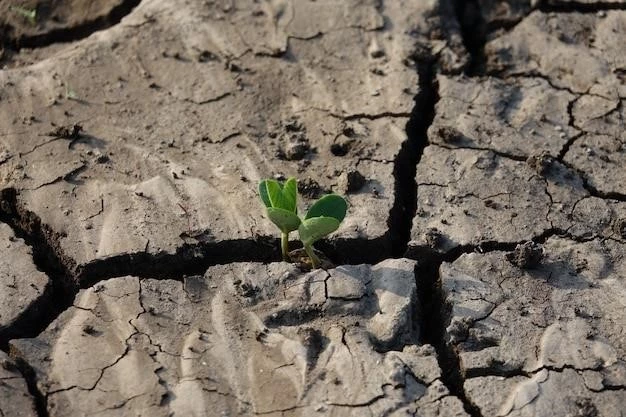Climate change is a pressing global issue with far-reaching consequences for ecosystems and human societies․ Plants‚ as the foundation of many ecosystems‚ are particularly vulnerable to the changing climate․ This article will explore the multifaceted impact of climate change on plants‚ highlighting the challenges they face and the implications for biodiversity‚ agriculture‚ and human well-being․
Rising Temperatures and Heat Stress
One of the most direct impacts of climate change is rising temperatures․ Plants have optimal temperature ranges for growth and development․ Exceeding these thresholds can lead to heat stress‚ characterized by impaired photosynthesis‚ reduced growth‚ and increased susceptibility to diseases and pests․
Heat stress can also trigger early flowering and senescence‚ disrupting reproductive cycles and reducing seed production․ For example‚ studies have shown that rising temperatures in some regions have already shortened the growing season for important crops like wheat and rice․
Changes in Precipitation Patterns
Climate change is altering precipitation patterns‚ leading to both more frequent droughts and intense rainfall events․ Droughts can severely impact plant survival and growth‚ especially in arid and semi-arid regions․ Plants may struggle to access water‚ leading to wilting‚ reduced leaf area‚ and eventually death․
Conversely‚ excessive rainfall and flooding can damage root systems‚ displace plants‚ and create ideal conditions for disease outbreaks․ These extreme precipitation events can also lead to soil erosion and nutrient loss‚ further compromising plant health․
Increased CO2 Concentration
While elevated CO2 levels can initially stimulate plant growth through enhanced photosynthesis‚ this effect can be short-lived and often comes with trade-offs․ Plants grown under high CO2 conditions often have reduced nutritional value‚ particularly in terms of protein and essential minerals․
Furthermore‚ elevated CO2 can alter plant responses to other environmental stressors‚ such as drought and heat‚ potentially exacerbating their negative impacts․

Changes in Phenology and Distribution
Climate change is causing shifts in plant phenology‚ the timing of seasonal events such as flowering‚ fruiting‚ and leaf senescence․ These changes can disrupt pollination processes‚ alter plant-animal interactions‚ and lead to mismatches between plant growth cycles and the availability of pollinators and herbivores․
Furthermore‚ climate change is causing changes in plant distribution‚ with some species expanding their ranges while others are forced to retreat to higher elevations or latitudes․ These shifts can impact biodiversity and ecosystem function‚ potentially altering the composition and stability of plant communities․

Implications for Biodiversity‚ Agriculture‚ and Human Well-being
The impacts of climate change on plants have far-reaching consequences for biodiversity‚ agriculture‚ and human well-being․
- Biodiversity Loss: Climate change is a major driver of biodiversity loss‚ as plants struggle to adapt to changing conditions․ This loss of plant diversity can have cascading effects on ecosystems‚ reducing their resilience and ability to provide essential services․
- Agricultural Productivity: Climate change poses significant threats to agricultural productivity‚ potentially leading to crop failures‚ reduced yields‚ and food insecurity․
- Human Health: Plants play a vital role in regulating the Earth’s climate and providing essential resources for human societies․
Mitigation and Adaptation Strategies
Addressing the impacts of climate change on plants requires a multifaceted approach that includes both mitigation and adaptation strategies․
- Mitigation: Reducing greenhouse gas emissions is crucial to limit the extent of climate change and its impacts on plants․
- Adaptation: Adapting to the changing climate involves developing strategies to minimize the negative impacts on plants and enhance their resilience․
Conclusion
Climate change is having a profound impact on plants‚ altering their growth‚ development‚ distribution‚ and interactions with other organisms․ These changes have significant implications for biodiversity‚ agriculture‚ and human well-being․ Understanding the effects of climate change on plants is essential for developing effective mitigation and adaptation strategies to ensure the sustainability of ecosystems and the well-being of future generations․










